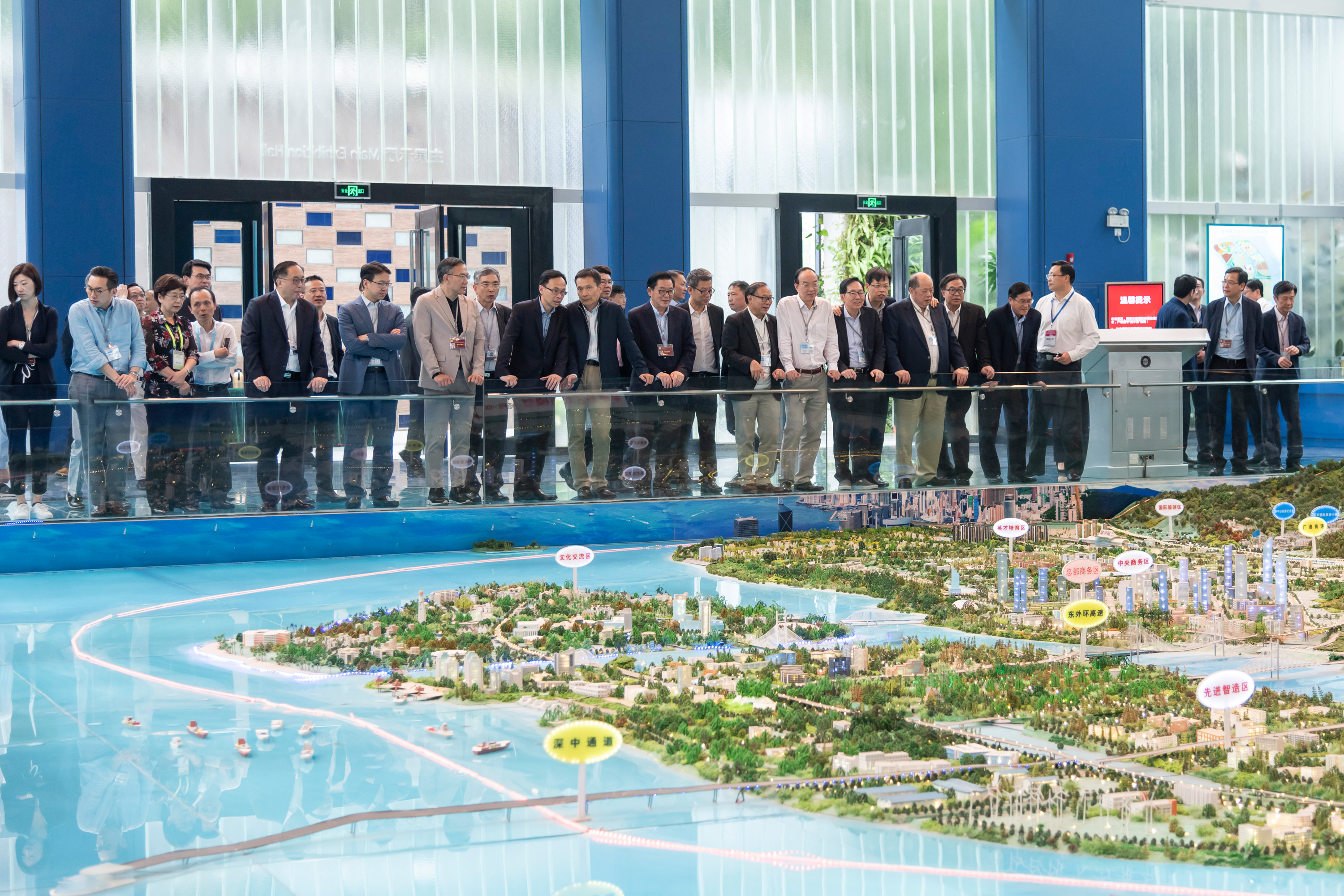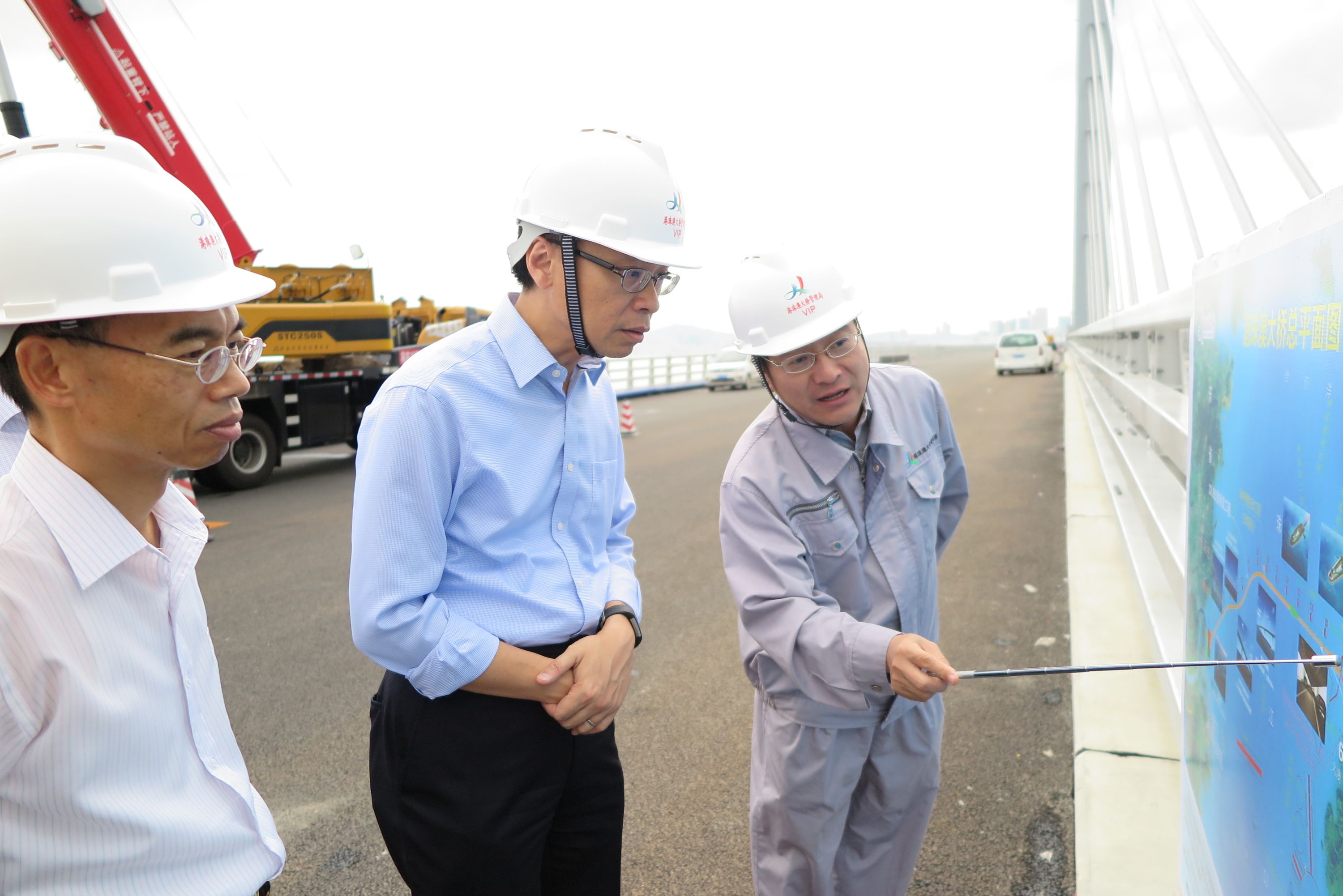The hottest topic on a lot of Hong Kong government and business leaders’ lips these days is the Greater Bay Area. This regional project aims to integrate Hong Kong, Macau, and nine Guangdong cities into one giant area.
With aims ranging from becoming the next Silicon Valley to becoming the world’s biggest “bay” area, the GBA is nothing if not ambitious.
Hong Kong is being called upon to fully accept the GBA, with former Chief Executive CY Leung even calling for locals to embrace a “Bay Area people” identity and Hong Kong youngsters offered a “GBA summer camp.” Hong Kong should feel flattered, because it is clearly one of the key parts of the GBA. It has the largest economy, at least as of 2017, out of all 11 cities involved, and the most developed financial and legal infrastructure.

Putting aside distrust and suspicion toward Beijing, any sober review of the GBA that goes beyond the headlines and hype raises several puzzling issues.
First off, what is the point of trying to be comparable with New York or San Francisco or Tokyo? Ignoring the geographical fact the GBA is not a bay but a river delta, why is that even a target?
Each of those major cities possesses different strengths and industries and fulfills a different role in its country. To look at New York or Tokyo and simply expect Hong Kong, Macao and nine Guangdong cities to emulate one of them sounds simplistic and simple-minded.
Moving on, the aim of integrating Hong Kong, Macao, and nine Guangdong cities including Guangzhou and Shenzhen into one giant entity rests on implementing common laws and regulations, open borders, and tighter transit links, such as the controversial Express Rail Link.
However, this sounds a lot like Hong Kong giving up or watering down some of its special rights, which are among Hong Kong’s greatest strengths. Proper rule of law exists in Hong Kong, at least in general, where the law is separate from the government and officially neutral.
Meanwhile, Hong Kong’s professional standards and practices are highly trusted, which is why many multinational and foreign companies have their regional headquarters here.
To link Hong Kong more closely to the mainland would dilute Hong Kong’s own rule of law and standards. In a KPMG report on the GBA, a Swire director even refers to the EU’s internal borderless agreement as a possible example for the GBA.
Other suggestions also include the easing of customs procedures within the GBA and reviewing border controls, presumably including the Hong Kong-Shenzhen border. The KPMG report, which was done with the Hong Kong General Chamber of Commerce, for whom this writer worked in the past, offers a “market view” of the GBA and not surprisingly, is full of gushing superlatives and predictions.

Talk of borderless arrangements and easing border controls might sound good but it raises the question – shouldn’t the onus be on the mainland side (Guangdong) to actually implement rule of law and raise its regulations and procedures to the level of Hong Kong’s first? Guangdong officials should be coming to Hong Kong to learn about how things are done here, not the other way around.
Meanwhile, in an era where internationalization is increasingly important and the “rise” of Asia is supposedly underway, Hong Kong should be looking outwards, not inwards. Hong Kong’s success as a trading, logistics and finance hub has always been contingent on facilitating external links with the world.
Hong Kong should be encouraged to boost its international competitiveness in areas such as multilingualism and diversifying its economy. Instead, Hong Kong is expected to expend a lot of effort and focus on the GBA, and “integrate” with Guangdong more.
One almost can’t go a day without reading about the GBA in local media. There is always some meeting or conference or announcement touting the GBA, not to mention the aforementioned youth summer programme. The GBA has been touted as providing a wealth of opportunities and a solution to Hong Kong’s problems such as overcrowding, high property prices and jobs.
Just last week, Chinese Vice Premier Han Zheng toured Shenzhen, where he urged GBA cities to work together. Sometime in June, Beijing is expected to release a “national-level plan” for the GBA.

The geographical constraints of the GBA mean any sort of “integration” will be a very tough challenge. With an area of over 56,000 square kilometers and comprising about 66 million people, the GBA significantly exceeds the size of its “competitors” like the Tokyo Bay and San Francisco Bay areas.
Much of the GBA, over 95 percent of it, is in Guangdong Province. But at the same time, a large part of the province is not included in the GBA. So what will happen to these cities, towns, and rural regions that are left out?
The Tokyo Bay and San Francisco Bay areas are also centred on specific cities, whereas the GBA has at least three main cities – Hong Kong, Shenzhen, and Guangzhou. Cooperation between Guangdong and Hong Kong is not unwanted, but forced, top-down cooperation is another thing.
Similar to the Belt and Road initiative, the GBA is another of Xi Jinping’s ambitious pet projects. And just as Hong Kong business and government leaders were leaned on to support the Belt and Road as enthusiastically as they can, or at least pretend to, so it is with the GBA. Both the Belt and Road and the GBA ideas share the characteristic of being so nebulous that they can be used to promote any objective.
The GBA has failed to catch on with the general Hong Kong public, and for good reason. It is a vague and grandiose plan that is all style and no substance. It is increasingly hard to reject the theory that the GBA is meant to subsume Hong Kong within the mainland, and enable Guangdong’s cities to exploit its advantages whilst eroding Hong Kong’s distinct identity.
Unfortunately, many of Hong Kong’s political and business elite seem more than happy to enable this.
